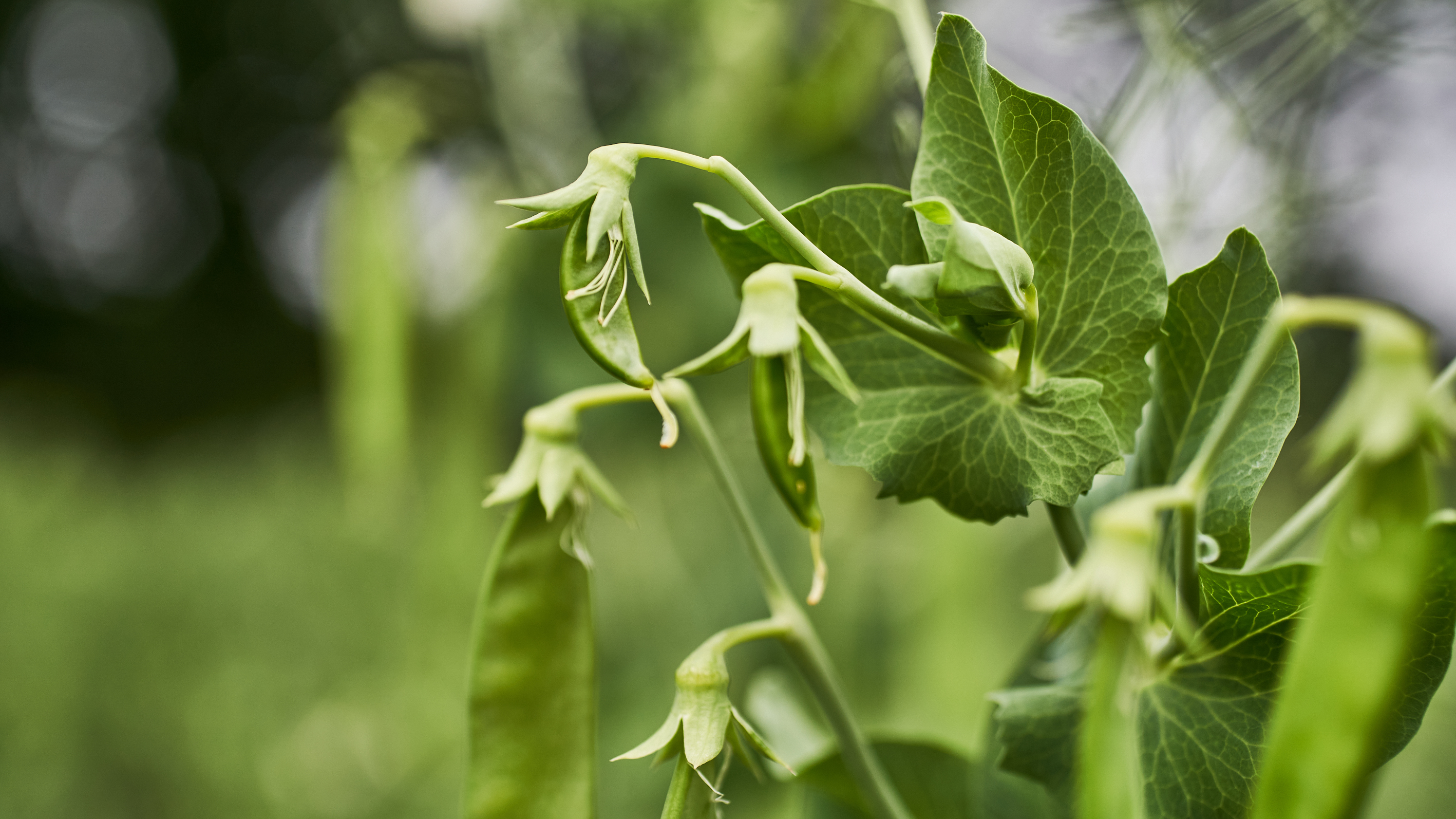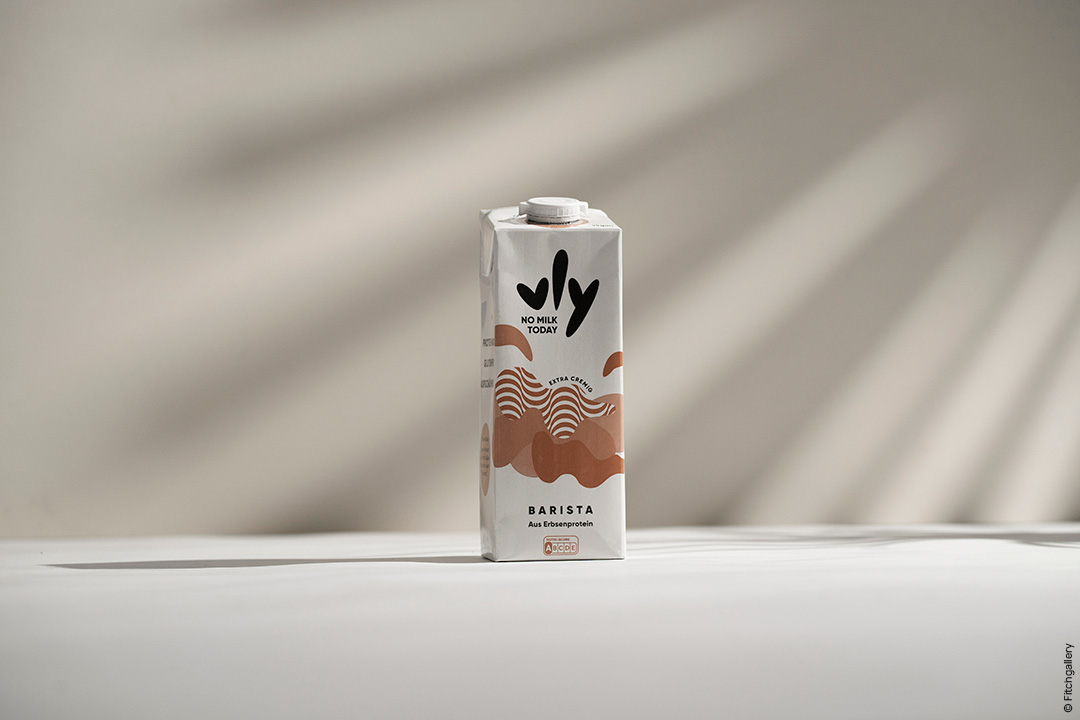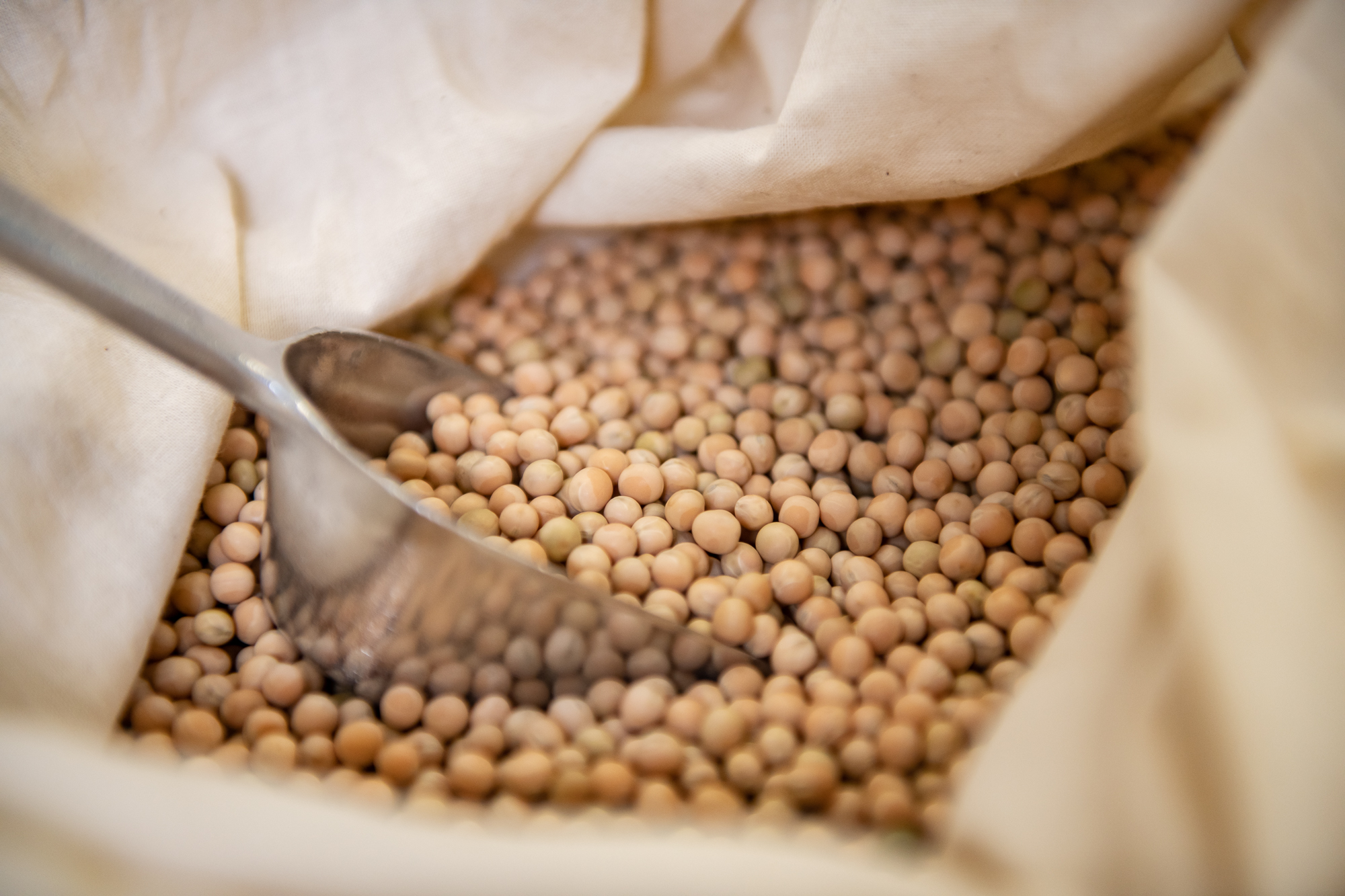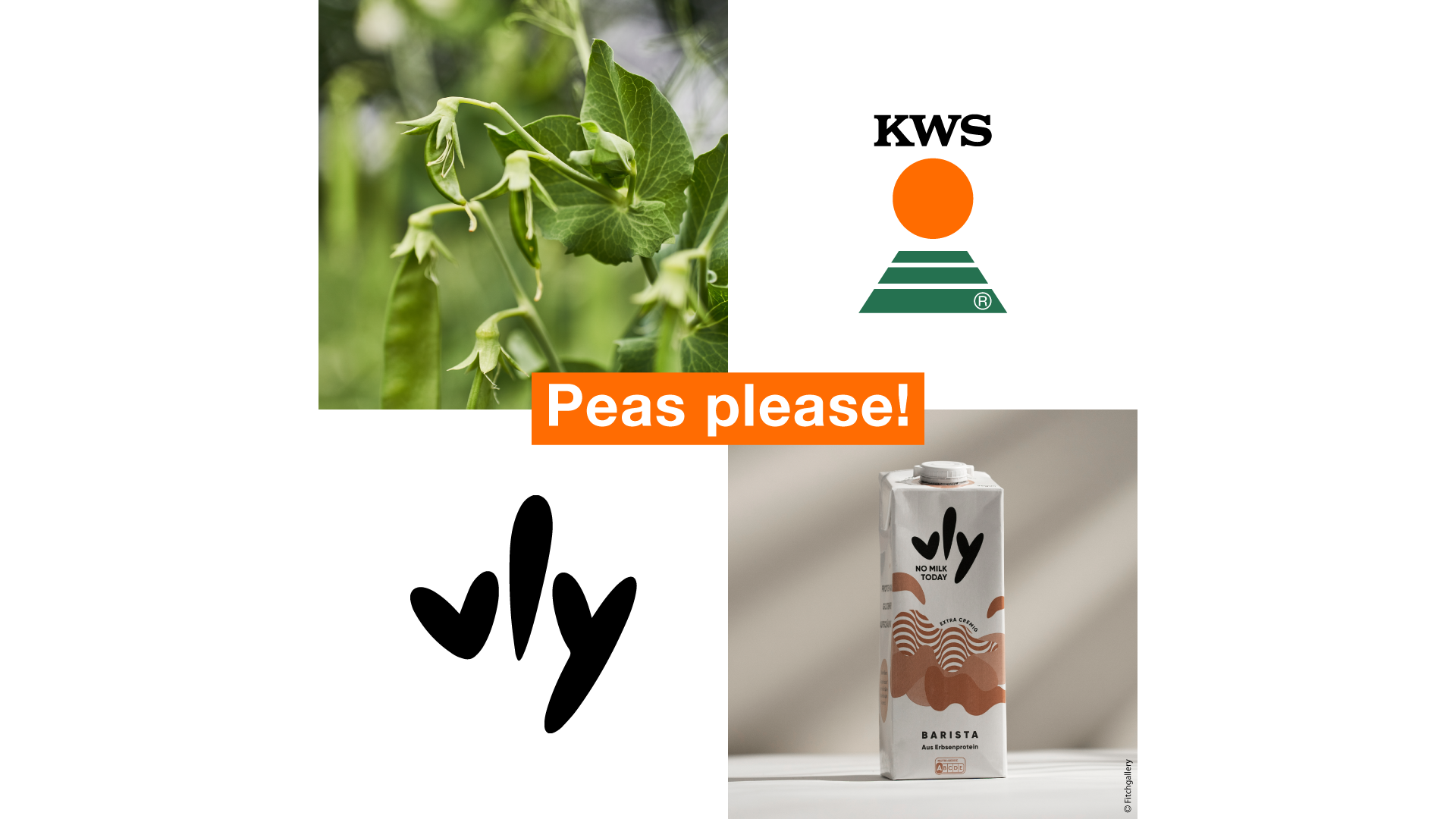Pea protein
Breeding for Tetra Pak and the refrigerated section
The food start-up vly produces milk and yogurt alternatives based on pea protein. The starting material for this is to come from KWS in the future and is a new field in our breeding work. Further partnerships of this kind are anticipated.
When Nigel Moore mixes his muesli in the morning, it’s often oat milk that ends up in his bowl, not cow’s milk. “As is only logical; its flavor goes well with oat flakes,” says our Head of Nutritional Food Ingredients. Soy or almond milk? There you have to consider their distinct flavors and the high environmental impact of almonds.
Nigel Moore also has another alternative: pea milk from the Berlin start-up vly – which, in the future, could be based on KWS seed. vly and KWS recently agreed on a development partnership that will extend over several years. The goal is to boost pea-based milk substitutes to be even more popular than those made from oats and soy. The main criterion is that it tastes good to as many people as possible. “For me, vly’s pea milk already has a pleasant taste,” says Nigel Moore, “but I also recognize there’s room for improvement.”
Consistent protein for consistently good taste
Dr. Anna Birke, senior fermentation scientist and innovation manager at vly, is working to achieve just that. Using fermentation and other processes, she is working on adjusting the sensory profile of pea protein-based dairy alternatives to match those of their dairy counterparts or to simply create a well-rounded taste that will find high consumer acceptance. At vly, the main ingredient used in all products is pea protein isolate, the concentrated and purified protein from ground yellow peas. “The protein is the main ingredient in our products and has the biggest influence on their taste.”
“The problem to date is that vly sources its raw materials, i.e. pea protein isolates, from different suppliers depending on the application and desired functionalities. We, therefore, have to work with a range of different protein isolates that may or may not have different aroma and flavour profiles.”
But these profiles help her adjust the flavor from “musty,” “grassy” or “papery” to achieve a neutral, creamy, milky taste. “Right now, I’m working on an updated version of our yogurt. So far, I’ve tested 15 different protein isolates. They are all so different, they’re hard to work with because I can’t anticipate how well they will perform. Knowing what seed we're working with and selecting ones that are suitable for our applications is key.”
Premiere for pulses
An encounter in a co-working space in Berlin a year ago paved the way for the cooperation between vly and KWS. Anna notes: “As a result, we are thrilled to have the opportunity to specifically select peas that are suited to our applications for the first time through this collaboration.” KWS already has some preliminary findings of flavor differences in their peas, “so it will be very exciting to discover how that transfers to milk following protein extraction,” says Nigel Moore.
KWS has previously known this form of cooperation only in a few areas, such as supplying barley specifically for breweries, rye for gin distilleries or wheat for bread or cookies, but so far this has rarely been with a partner from the consumer-facing portion of the supply chain. This is a first for pulses. “Nutritional Food Ingredients is a Focus Area in our 2031 Strategic Plan,” says Nigel Moore. “Operating in this field is ultimately a new corporate objective.” The partnership with vly “is the first of hopefully many more projects with food manufacturers where we can test our products in a real world environment.”
DEVELOPMENT IS NOT
JUST ABOUT PEAS.
Market leader in peas in Europe
That’s also important because a new focus is emerging in breeding. “Up to now, traits such as yield, harvestability or drought tolerance have been important for us. They’re now being joined by new criteria in the shape of improved taste and texture in plant-based food. This means that foods made from our peas will need fewer additional ingredients like gums, stabilizers and flavorings and deliver the ‘clean label’ that consumers want.” That is done through additional selection in the existing breeding material. An important aspect: The results must be reproducible so that the protein always has the same qualities, and the taste remains unchanged.
There are several reasons for deciding to start with peas: KWS is the market leader for peas in Europe with the main growing areas being in France, Northern Germany, the Baltic states and the UK. In view of the climate-related challenges, cultivation is expected to expand to other countries and regions. Cultivating peas also delivers sustainable added value because peas break up cereal-intensive crop rotations, have a positive impact on soil life and fix nitrogen with the help of symbiotic bacteria. Peas are also considered easy to process and have a more neutral color and taste than other grain legumes. They are also very low in allergens even when protein isolates have a high protein content of up to 86 percent.
To learn more about our ingredient partnerships, please contact:






